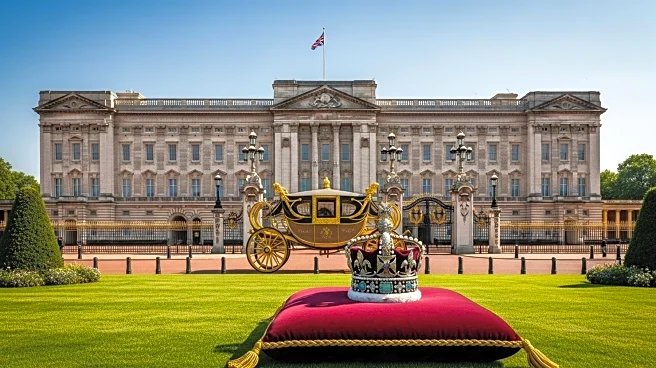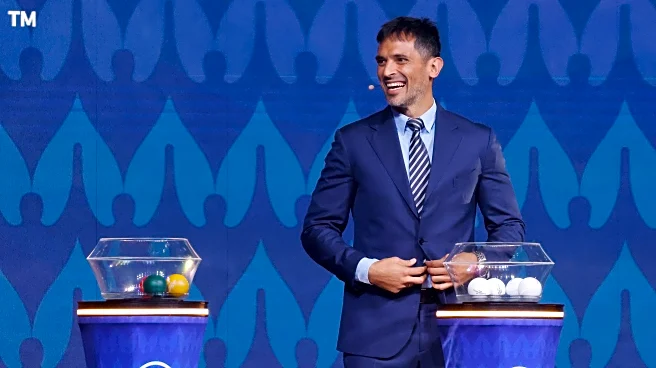What's Happening?
President Trump has been invited for a second state visit to the United Kingdom, a rare honor extended by King Charles through British Prime Minister Keir Starmer. This invitation marks an unprecedented event, as no U.S. president has received a second state visit invitation from the U.K. before. Trump's fascination with the British royal family is well-documented, stemming from his mother's admiration for Queen Elizabeth II. The upcoming visit will include meetings with King Charles and other royal family members, a carriage procession, military bands, and a state banquet at Windsor Castle. Trump will also meet with Prime Minister Starmer at Chequers to discuss bilateral issues.
Why It's Important?
The invitation for a second state visit underscores the strategic diplomatic relationship between the U.S. and the U.K. Leveraging Trump's interest in the monarchy, the U.K. aims to influence his stance on international issues, such as support for Ukraine in its conflict with Russia. This diplomatic move highlights the U.K.'s use of soft power through the royal family, capitalizing on Trump's affinity for the monarchy. The visit is expected to draw significant attention and protests, reflecting Trump's polarizing presence in the U.K. The event also emphasizes the special relationship between the two nations, with state visits serving as a highlight for U.S. presidents due to the historical ties and ceremonial grandeur involved.
What's Next?
During the visit, President Trump and Prime Minister Starmer are expected to hold discussions on various bilateral issues, potentially including trade, security, and international cooperation. The visit may also influence Trump's foreign policy decisions, particularly regarding the U.K.'s interests. The meeting at Chequers will provide an opportunity for both leaders to strengthen diplomatic ties and address pressing global challenges. The visit's impact on U.S.-U.K. relations will be closely monitored by political analysts and stakeholders, as it could shape future collaborations between the two countries.
Beyond the Headlines
Trump's admiration for the monarchy reflects his broader views on governance, as he has previously praised monarchical systems. This interest may influence his approach to leadership and international diplomacy. The visit also highlights cultural dimensions, as Trump's engagement with the royal family contrasts with the U.S.'s historical stance against monarchy. The event may spark discussions on the role of soft power in international relations and the influence of personal affinities on diplomatic strategies.










